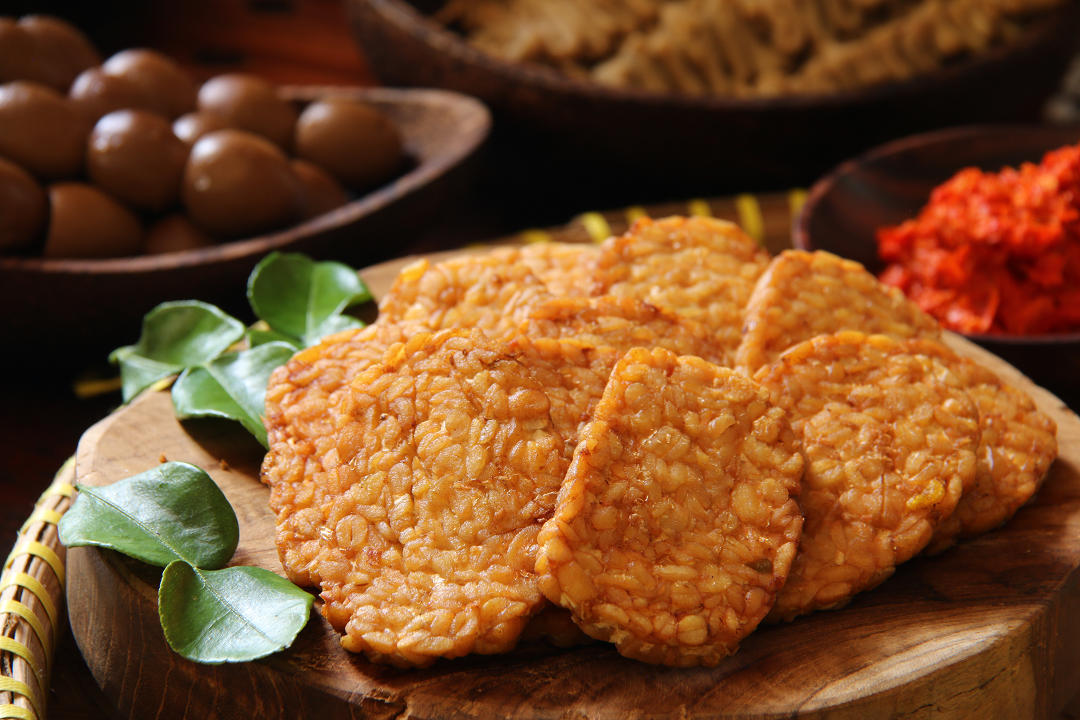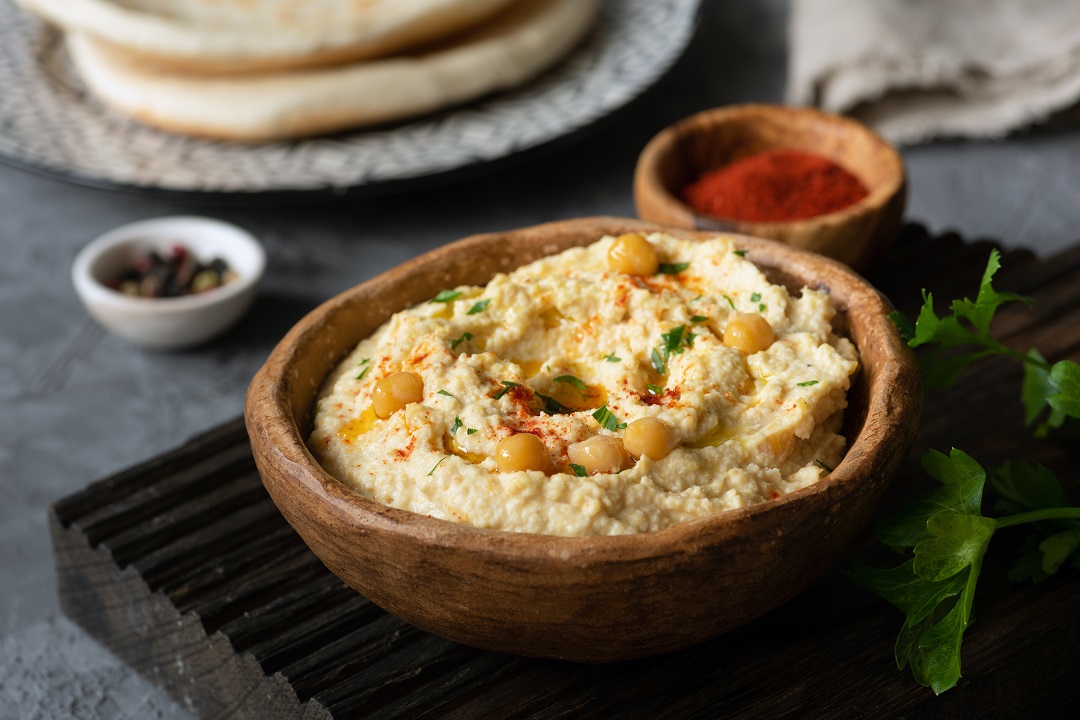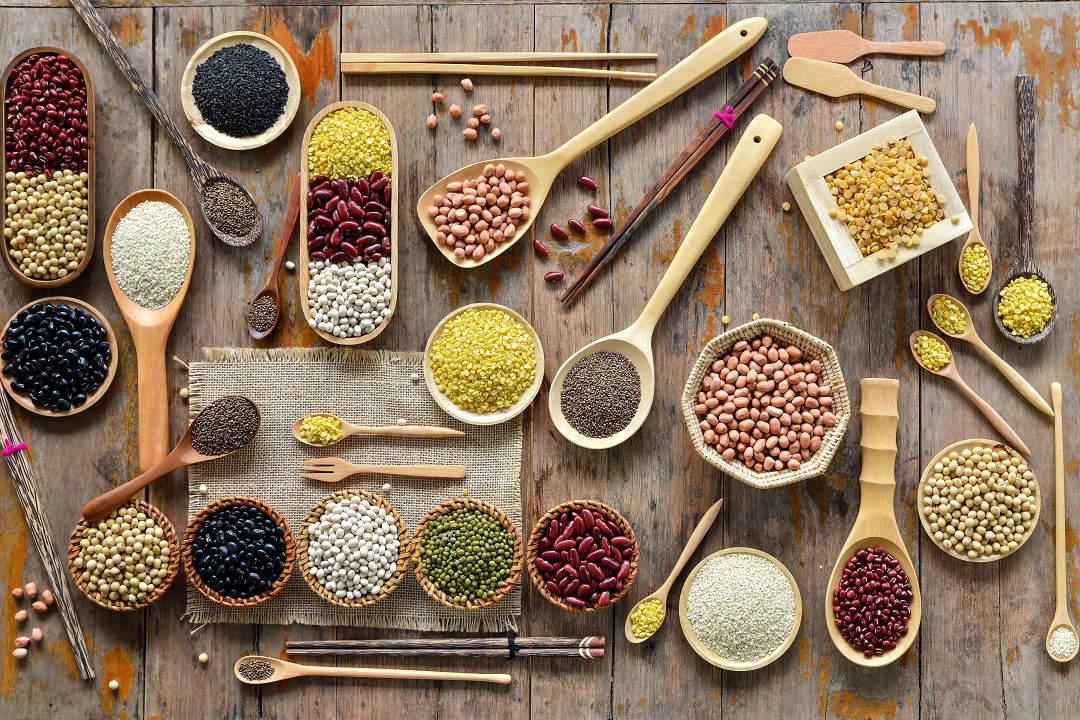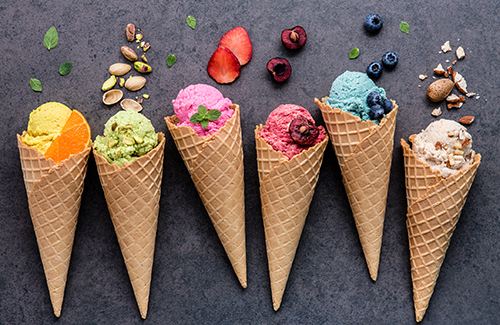If you live a vegan lifestyle, getting enough protein is something you may worry about. Although many Americans get the majority of their protein from meat, there are plenty of other alternatives for sources of healthy protein. Since World Vegan Day is celebrated in November, I thought this would be the perfect time to share 10 sources of vegan-friendly proteins.
Seitan. This wheat-based meat alternative packs a whopping 36 grams of protein into every ½ cup serving. Texturally, it is also the closest thing to meats like pork and beef and can stand up to grilling and frying. However, this protein option is not gluten-friendly. If you have celiac disease or a gluten intolerance, avoid eating seitan.
 Tempeh. With 15.5 grams of protein per ½ cup, tempeh is made out of fermented soybeans and formed into a patty. It’s got a bit of a nutty flavor and is extremely popular in Asia since it originates from Indonesia.
Tempeh. With 15.5 grams of protein per ½ cup, tempeh is made out of fermented soybeans and formed into a patty. It’s got a bit of a nutty flavor and is extremely popular in Asia since it originates from Indonesia.
Nuts. Small but mighty, nuts pack 10.5 grams of protein per ½ cup. They are also a fantastic source of healthy fat. Almonds, cashews, peanuts and pistachios can be a great snack to grab while on the go. If you have a bit more time, try nut butter with crackers or celery. Just be careful to choose organic, raw, or natural butter that doesn’t contain extra sugar. A quick look at the ingredients list on the label will help you decide which brand to pick.
Tofu. This 10g per ½ cup soy product can sometimes get a bad reputation for its lack of flavor, but that can be used to your advantage. Since tofu doesn’t have a lot of flavor on its own, it adapts to the flavor of whatever dish you are preparing. It is chock-full of nutritional benefits like calcium and iron and is extremely versatile in its usage.
Lentils: They come in all sorts of colors: brown, green, black, red…take your pick! While it may not be the first food that comes to mind for a healthy snack, they are packed with nutrition and 9 grams of protein per ½ cup. Savvy vegans will often add cooked lentils as a salad topping or in soups.
Edamame. Soy is a serious provider of protein, so it’s no surprise that edamame packs 8.5 grams per ½ cup. Also a fun dish to share with friends!
Beans. Black beans, kidney beans, pinto beans, soybeans, chickpeas… take your pick! These little guys average about 8 grams of protein per ½ cup, so they are a great addition to your meal. They aren’t considered “complete proteins” because they don’t contain amino acids, but adding them with rice or veggies with all 9 amino acids will make them complete.
 Hummus. There is a reason hummus has grown in popularity over the last few years. With 6 grams of protein per ½ cup, this dip can be a healthy snack that sustains you until your next meal. There are a bunch of different flavor combinations with hummus that you can choose from. If you are looking for something unique, try this lemongrass hummus recipe!
Hummus. There is a reason hummus has grown in popularity over the last few years. With 6 grams of protein per ½ cup, this dip can be a healthy snack that sustains you until your next meal. There are a bunch of different flavor combinations with hummus that you can choose from. If you are looking for something unique, try this lemongrass hummus recipe!
Quinoa. Fun fact – the quinoa that we eat is actually a seed. The plant itself is a grain, but it is only grown for the seeds that we eat. With 4 grams per ½ cup, it is a good source of quality protein, complete with all 9 amino acids.
Green Peas. For children, green peas are not the most popular veggie at the dinner table. However, adults know that that they are a super food. Not only do cooked peas provide 4 grams of protein per ½ cup, but they also cover more than 25% of your daily fiber, vitamin A, C, K, thiamine, folate and requirements. Time to revive the green peas!
With all the nutrition research available in this day and age, we know that consuming the recommended daily dose of protein doesn’t have to be hard. These 10 sources of vegan proteins are just a few options to choose from. Incorporating these goodies and other protein sources into your weekly meal plan will help keep your body and immune system strong.
Looking for ways to incorporate these proteins into vegan meals? Check out my 12 vegan lunch ideas for meetings.



